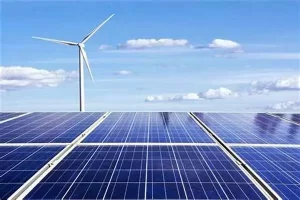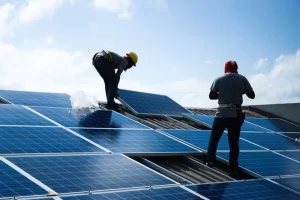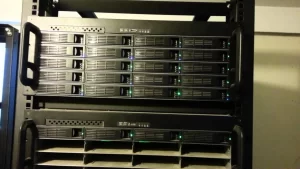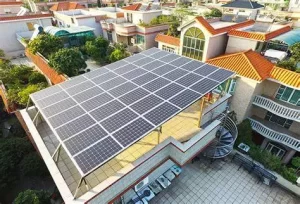The Powerful Assistant of Solar Energy: The Mysterious Power of Hybrid Inverter for solar
In the modern quest for sustainable energy solutions, solar power has emerged as a beacon of hope. Solar panels convert sunlight into electricity, promising a cleaner, greener future. However, the journey from sunlight to usable power involves several key components, among which hybrid Inverter for solar play a crucial yet often underestimated role. These devices are the unsung heroes of the solar energy system, orchestrating a symphony of efficiency and reliability. This article delves into the hybrid inverter’s role, its functions, benefits, and why it’s considered a powerful assistant in the realm of solar energy.

Understanding Hybrid Inverters
At its core, a hybrid Inverter for solar is a sophisticated device that combines the functionalities of a traditional inverter with those of a battery management system. Traditional solar inverters convert direct current (DC) produced by solar panels into alternating current (AC), which is used by most household appliances and fed into the grid. Hybrid inverters take this a step further by integrating battery storage into the equation. This means they can manage not only the conversion of solar power but also the storage and utilization of energy in batteries.
The Dual Role: Solar and Battery Management
One of the most significant advantages of a hybrid Inverter for solar is its dual role in solar and battery management. Traditional inverters and battery systems are typically separate, requiring individual management and potentially leading to inefficiencies. A hybrid Inverter for solar consolidates these functions, providing seamless interaction between the solar panels, batteries, and the grid.
1.Solar Power Conversion: Hybrid inverters first and foremost convert the DC electricity generated by solar panels into AC electricity. This is crucial for powering household appliances and for integration with the grid.
2.Battery Storage and Management: Hybrid inverters can channel excess solar power into a battery storage system. This stored energy can be used when solar production is low, such as during the night or cloudy days. The inverter manages the charging and discharging cycles of the battery, optimizing its lifespan and performance.
3.Grid Interaction: Hybrid inverters can also facilitate energy exchange with the grid. They can supply excess solar power to the grid, and in some cases, draw energy from the grid when necessary. This flexibility helps in balancing energy supply and demand, contributing to overall grid stability.
Benefits of Hybrid Inverters
Hybrid inverters offer a range of benefits that make them an attractive option for solar energy systems. Here are some of the key advantages:
1.Enhanced Energy Independence: By integrating battery storage, hybrid Inverter for solar enable homeowners to store excess energy for later use. This means that energy can be used during periods of low solar generation, reducing reliance on grid power and enhancing energy independence.
2.Cost Savings: Although hybrid inverters may involve a higher initial investment compared to traditional inverters, they can lead to significant long-term savings. By optimizing energy use and reducing reliance on grid electricity, users can lower their energy bills.
3.Improved Energy Efficiency: Hybrid inverters can optimize the use of solar energy and battery storage. They ensure that energy generated during peak sunlight hours is effectively stored and used, minimizing waste and improving overall system efficiency.
4.Backup Power Supply: In regions prone to power outages, hybrid inverters equipped with battery storage can provide a reliable backup power supply. This ensures that essential appliances and systems remain operational even during grid failures.
5.Future-Proofing: As technology advances, hybrid inverters offer a degree of future-proofing. They can integrate with emerging technologies and adapt to new energy management strategies, ensuring that the system remains relevant and effective over time.
The Technological Edge
The technological sophistication of hybrid inverters extends beyond their basic functions. Modern hybrid inverters come equipped with advanced features that enhance their performance and usability:
1.Smart Monitoring: Many hybrid inverters offer real-time monitoring capabilities through digital platforms or mobile apps. This allows users to track energy production, battery status, and overall system performance from anywhere, providing valuable insights and control.
2.Grid Support Functions: Some hybrid inverters have advanced grid support functions, such as voltage regulation and frequency stabilization. These features contribute to grid stability and can enhance the resilience of the overall energy system.
3.Integration with Smart Home Systems: Hybrid inverters can integrate with smart home systems, allowing for automated energy management. This integration can optimize energy use based on household consumption patterns and other variables, further improving efficiency.
4.Modular Design: Many hybrid inverters feature a modular design, allowing for scalability and customization. Users can expand their solar and storage systems as needed, adapting to changing energy needs and technological advancements.
Challenges and Considerations
While hybrid inverters offer numerous benefits, they are not without challenges. The initial cost can be high, and proper installation and maintenance are crucial to ensure optimal performance. Additionally, the efficiency of the hybrid inverter is dependent on the quality of the battery storage system. Choosing the right components and ensuring compatibility is essential for maximizing the benefits of a hybrid solar system.
Conclusion
Hybrid inverters are indeed powerful assistants in the realm of solar energy, bridging the gap between solar power generation and energy storage. Their ability to manage both solar and battery systems within a single device enhances energy efficiency, reduces costs, and provides greater energy independence. As solar technology continues to evolve, hybrid inverters will remain at the forefront, driving innovations and contributing to a more sustainable energy future. Understanding and leveraging the capabilities of hybrid inverters can empower individuals and businesses to harness the full potential of solar energy, making a significant impact on their energy consumption and environmental footprint.
Contact us
- Email:[email protected]
- Tel: +86 13651638099
- Address: 333 Fengcun Road, Fengxian District, Shanghai
Get A Quote Now!
Read more

Unveiling Photovoltaic+Energy Storage: Four Major Application Scenarios Leading the Future of Energy
In this way, the energy landscape is evolving, and one of the most thrilling developments in renewables is the integration of photovoltaics energy storage.

From Theory to Practice: Four Methods for Estimating Photovoltaic Power Generation
Photovoltaic power generation has become an essential part of modern energy solutions, particularly in home solar systems and distributed power applications

Rack-Mounted Lithium Iron Batteries: Creating Efficient and Reliable Energy Storage Solutions
When it comes to modern energy solutions, rack-mounted lithium iron batteries are taking center stage in a variety of industries. Whether you’re powering data centers, stabilizing energy for households, or keeping critical systems online at 5G base stations, these batteries have become the unsung heroes of our electrified world.

Late Night Energy Saving Tips: How to Maximize Electricity Savings During Off-Peak Hours
With rising energy costs, homeowners are increasingly exploring innovative ways to save on their electricity bills. One effective approach is utilizing off-peak hours—times when electricity rates are significantly lower due to reduced demand.
